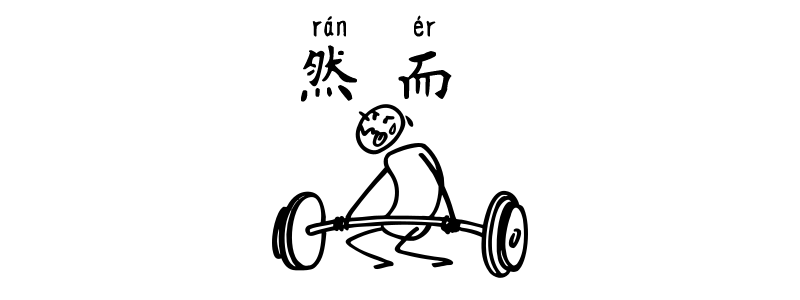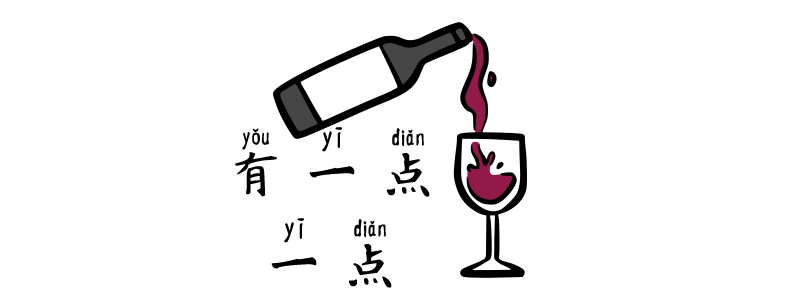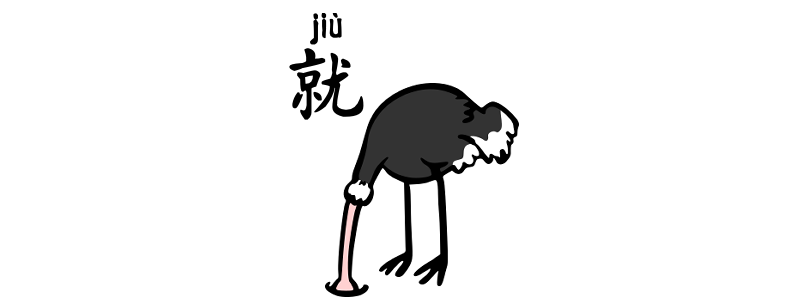Introduction:Ever noticed how English mainly uses “if,” while Chinese has multiple ways to express the same idea? The terms 假如 jiǎrú, 萬一 wànyī, 要是 yàoshi, 如果 rúguǒ, 的話 dehuà, 假設 jiǎshè, 倘若 tǎngruò, and 若是 ruòshì假如 jiǎrú, 万一 wànyī, 要是 yàoshi, 如果 rúguǒ, 的话 dehuà, 假设 jiǎshè, 倘若 tǎngruò, and 若是 ruòshì are all used to express…
Author: tiffany
“if… then…” in Chinese – jiǎrú and wànyī
Grammar Point:In Chinese, 假如 jiǎrú and 萬万一 wànyī are both used to express conditional or hypothetical situations, similar to “if” in English, but they serve slightly different purposes and tones. Structure 假如 jiǎrú + condition + (就 jiù) + result 假如 jiǎrú is used for hypothetical or imagined scenarios, similar to saying “if” or “in case” in English….
Indicate effect with 而 ér
Grammar Point:The structure 因為为 yīnwèi… 而 ér… is commonly used in Chinese to express a cause and effect relationship. This structure clearly delineates the reason for a certain outcome or situation. Structure S + 因(為为) yīn(wèi) + Cause + 而 ér + Result Using 而 ér instead of 所以 suǒyǐ adds a formal tone to your sentences. It’s…
South Africa forces Taiwan to relocate its representative office out of the capital
TVBS 新聞xīnwén網wǎng編biān譯yì丘力龍qiūlìlóng報導bàodǎoTVBS 新闻xīnwén网wǎng编biān译yì丘力龙qiūlìlóng报导bàodǎo2024/10/22 09:43The original article is here This is the slow version. If you want to listen to the regular broadcasting speed, please adjust to 1.25 speed on the side. 南非nánfēi要yào我wǒ國guó代表處dàibiǎochù遷出qiānchū首都shǒudōu南非nánfēi要yào我wǒ国guó代表处dàibiǎochù迁出qiānchū首都shǒudōu 非fēi媒méi警告jǐnggào: 台灣Táiwān「 3 舉動jǔdòng報復bàofù」 就jiù慘cǎn了le非fēi媒méi警告jǐnggào: 台湾Táiwān「 3 举动jǔdòng报复bàofù」 就jiù惨cǎn了le 根據gēnjù南非nánfēi媒體méitǐ報導bàodǎo, 南非nánfēi政府zhèngfǔ疑似yísì在zài中國Zhōngguó的de壓力yālì下xià, 以yǐ文件wénjiàn通知tōngzhī我國wǒguó代表處dàibiǎochù, 要求yàoqiú將jiāng代表處dàibiǎochù遷出qiānchū首都shǒudōu普勒托利亞pǔlètuōlìyǎ, 且qiě強調qiángdiào「 沒有méiyǒu商量shāngliáng的de餘地yúdì」 。 根据gēnjù南非nánfēi媒体méitǐ报导bàodǎo, 南非nánfēi政府zhèngfǔ疑似yísì在zài中国Zhōngguó的de压力yālì下xià, 以yǐ文件wénjiàn通知tōngzhī我国wǒguó代表处dàibiǎochù, 要求yàoqiú将jiāng代表处dàibiǎochù迁出qiānchū首都shǒudōu普勒托利亚pǔlètuōlìyà, 且qiě强调qiángdiào「 没有méiyǒu商量shāngliáng的de余地yúdì」 。 對此duìcǐ,…
“Explaining purpose” – wèi… ér…
Grammar Point:The 為 wèi…而 ér… structure in Chinese is used to explain purpose or reason, similar to saying “for the purpose of” or “in order to” in English. This structure emphasizes why an action is taken or what it’s aimed at achieving. Structure 為为 wèi + Purpose/Reason + 而 ér + Action/Outcome This structure is typically used in written or formal…
“That’s all” in Chinese – 而已 éryǐ
Grammar Point:In Chinese, 而已 éryǐ is used to indicate limitation or emphasize that something is just what it is and nothing more. It’s similar to saying “that’s all,” “just,” or “nothing more” in English. It’s often placed at the end of a sentence to downplay or clarify the significance of something. Structure Statement + 而已 éryǐ 而已…
“Whereas” in Chinese – 而 ér
Grammar Point:The usage of the Chinese conjunction 而 ér can vary depending on the context. In this article, we will focus on its function in contrast (while, whereas), which is often used to show a distinction between two actions, states, or situations Structure Situation + 而 ér + Contrast situation 為什麼wèishénme他tā很hěn高gāo而ér我wǒ很hěn矮ǎi为什么wèishénme他tā很hěn高gāo而ér我wǒ很hěn矮ǎiWhy is he so tall while I’m so short?…
”However“ in Chinese – 然而 rán‘ér
Grammar Point:In Chinese, 然而 rán’ér is a conjunction used to express contrast or a turning point, similar to “however” or “yet” in English. It’s often used in written or formal contexts to introduce a statement that contrasts with the previous one. Structure Statement 1 + 然而 rán’ér + Statement 2 Statement 2 presents information that contrasts with…
“A bit” in Chinese – yìdiǎn
Grammar Point:Both 有一點点 yǒuyīdiǎn and 一點点 yìdiǎn convey the notion of ‘a little’ or ‘a bit,’ but with slight nuances. In China, 有點兒点儿 yǒudiǎnr is more commonly used instead of 有一點点 yǒuyìdiǎn. Structure 有一點点 yǒuyìdiǎn + Adjective indicates comparison Adjective + 一點点 yìdiǎn no comparison 一點点 yìdiǎn + Noun 今天jīntiān天氣tiānqì有一點yǒuyìdiǎn熱rè今天jīntiān天气tiānqì有一点yǒuyìdiǎn热rèToday’s weather is a bit hot….
就 jiù – Right after
Grammar Point:The Chinese grammar pattern “V+了le…就 jiù…” is used to express a sequence of actions, where one action happens right after another. It can be translated as “as soon as” or “right after” in English. Structure V + 了le + 就 + Verb Phrase The two verb phrases can be either affirmative or negative. 他tā吃chī了le早餐zǎocān就jiù開始kāishǐ工作gōngzuò他tā吃chī了le早餐zǎocān就jiù开始kāishǐ工作gōngzuòAfter…








